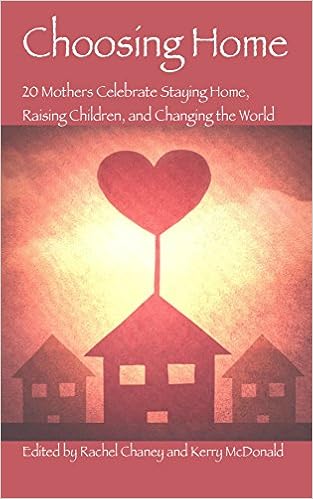Saturday was spring clean-up day at our city community garden, where we just received a plot after a long time on the waiting list.
One of the gardeners announced that she needed volunteers who could help identify maple tree saplings. They had to be spotted and removed before casting shadows on the growing crops. Two people spoke up, saying that they could identify maple seedlings: my 11-year-old daughter Molly and a veteran gardener who has been planting in that soil for decades.
When Molly said she knew how to identify the plants, the other gardeners were delightedly surprised. "Did you learn that in school?" one asked. "No, I homeschool," Molly replied. "So, did you learn it in homeschool?" the gardener continued. "No, I just know it," she answered cheerfully.
This weekend conversation exposes the deep, underlying myth in our culture that children cannot learn unless they are systematically taught. Whether in school or school-at-home, children can only learn when they are directed by an adult, when they follow an established curriculum, when they are prodded and assessed. How could a child possibly know how to identify plants if it wasn't part of a school-like lesson?
Yet, this assumption was not placed on the older gardener who also knew how to identify the maples. No one asked her if she learned about tree identification in school, or if she had a recent refresher course on the topic. It was assumed that she knew this information from experience, from immersion. She had been gardening a long time and likely enjoyed the process, becoming increasingly interested in plant and soil life. Maybe she spent time with other, more experienced gardeners who over time shared their wisdom with her. Maybe she read some books and referenced some field guides. No one questioned that the veteran gardener learned about maple-spotting through time, experience, and real-life immersion; yet, they had a hard time imagining that a child could do the same.
Molly became interested in gardening when she was quite young, prompted in part by her great-aunt's passion and talent for gardening. A master gardener, her aunt happily included Molly and her siblings in gardening efforts over the years. Molly became particularly interested in plant identification. She asked a lot of questions and absorbed all of the answers, through active involvement in the real-life process of gardening and exploring nature. She also referred to books and field guides periodically, when it mattered to her. Molly learned about plants from following her interests, asking questions of those more knowledgeable, listening thoughtfully to answers, and, crucially, from doing the real work of gardening. She learned the same way the older gardener learned, the way most humans naturally learn.
Most of what I know today was not what I learned in school. It is what I have learned since school, while following my own interests and pursuing meaningful work. This is how most of us adults learn--particularly if we have been fortunate enough to retain, or rekindle, that innate spark of human curiosity so often dimmed by conventional schooling.
As the renowned social reformer, Paul Goodman, wrote in Compulsory Mis-education:
"The hard task of education is to liberate and strengthen a youth's initiative, and at the same time to see to it that he knows what is necessary to cope with the on-going activities and culture of society, so that his initiative can be relevant. It is absurd to think that this task can be accomplished by so much sitting in a box facing front, manipulating symbols at the direction of distant administrators. This is rather a way to regiment and brainwash." (p. 140)
Children do not need to sit in a classroom, or at the kitchen table, following a regimented curriculum of knowledge deemed by others to be important. They learn as all people naturally learn when free from institutionalized education: by following the human instinct to explore, discover, and synthesize our world.
Children are astoundingly eager and capable learners when they are granted freedom, respect, and authentic opportunities to interact as vital members of their larger community. We must remove them from the box and welcome them to the world.
























YES! Wonderful illustration. I'll be sharing.
ReplyDeleteThank you, Laura!
Delete